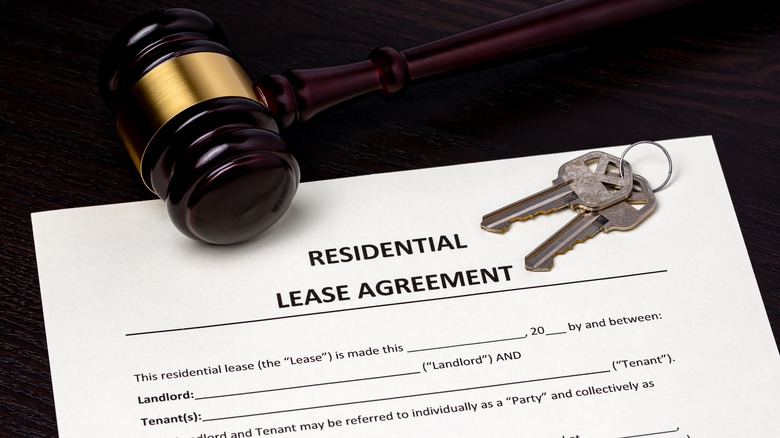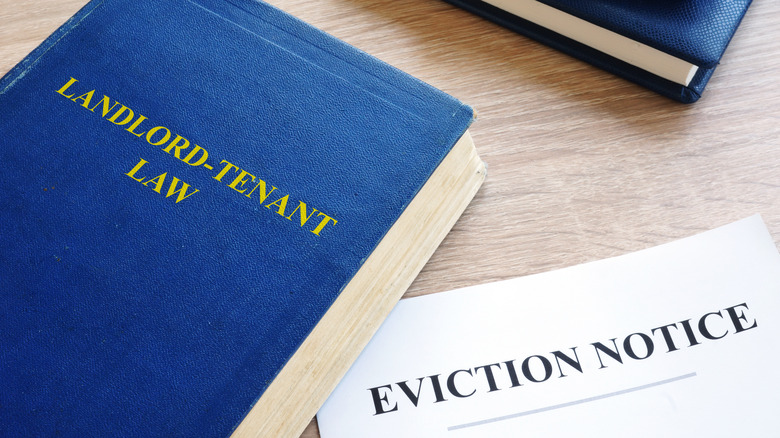Tenant Law Attorneys Explain How To Break Your Apartment Lease Without Any Hassle
Apartment living can come with many struggles, from pesky neighbors to seemingly unjustifiable price increases. Additionally, moving out of an apartment can be just as stressful as moving in, and initiating the process with little to no experience can make the situation more challenging. Though, there are occasions when renters need to move out of a unit before the date specified on their lease, which can create even more issues for both the tenant and the landlord involved.
There are many reasons why a tenant may have to break a lease early. Even relocating for a new job or moving at the last minute due to a family emergency could call for a need to break an active lease, but such scenarios are not always included in a lease as sensible reasons to move out of a unit early. But no matter the reason, early move-outs are sometimes necessary. When pursuing them, all tenants should be aware of their rights as renters and the policies listed within their lease to avoid being swindled by a greedy landlord. According to tenant law attorneys, here's how to break your apartment lease hassle-free.
Possible loopholes to consider
Depending on your lease, there are specific actions you might be able to take to depart from your rental unit early. According to local and national laws, tenants are allowed to terminate a lease before it runs out if they are active duty members of the military preparing for deployment or are a victim of domestic violence attempting to escape to a safer environment. Laws also allow tenants to break leases early if they suffer from uninhabitable living situations at the hands of inattentive landlords. Some of these laws only cover certain states, so check the tenant laws that govern your home state before approaching your landlord with requests.
"The safest method is to check the lease itself," Arizona-based tenant law attorney Ron Thomas said to U.S. News & World Report. "A lot of times it will have an early termination clause and ... the tenant can exercise that clause to break the lease early." However, even if your lease doesn't explicitly provide an early termination clause, your landlord may be open to an early release if you sacrifice some time or extra money to help them find a new tenant to take your place. Some landlords will hold onto your security deposit in exchange for initiating an early move-out. It's also common for landlords to expect their tenants to continue making rental payments, whether inside the unit or not, until they find a proper replacement.
Communicate amicably with your landlord
Some landlords are easier negotiators than others, but respectfully approaching your landlord may make all the difference when attempting to break your lease. Alpharetta, Georgia-based attorney David Merbaum recommends addressing your landlord courteously to make the process of leaving early possibly occur more smoothly. "You're in sort of a weak position, but it wouldn't preclude me from going to the landlord and just engaging them in a very amicable basis," Merbaum said, per U.S. News & World Report.
A landlord may support a lease break if they could benefit from the action financially. For example, a landlord may wish to replace a tenant within one of their units to raise the rental price to a competitive value. Though in most cases, it'll be nearly impossible to break a lease early without facing some consequence imposed by your landlord. If you agree with your landlord, draft a written copy of both parties' demands so that the agreement can be considered in a court of law in case of a future dispute. Receiving the deal in writing also ensures you, the tenant, won't be left short-sighted if your landlord attempts to return on their word.
Read over your lease and rights as a tenant
If your landlord is experienced and knows how to foster healthy relationships with tenants, the rules surrounding breaking a lease early should be clearly defined in the lease you signed before moving in. A typical section or subsection of a lease will include your landlord's policy regarding lease breaks and the consequences a tenant may face upon refusing to comply with the stated clause. Thoroughly read over the portion of your lease relating to moving out early before personally approaching your landlord with the issue.
Knowing your rights as a renter is crucial before getting into a legal dispute with a landlord. These tenant laws inform renters on what to expect from a rental agreement, including the responsibilities of both the tenant and landlord, both parties' legal entitlements, and the policies surrounding eviction and foreclosure. Tenant rights differ from state to state, so it's essential to consider how your home state handles lease breaks before consulting your landlord or other legal resources about pursuing an early move-out. Digital copies of tenant handbooks are available online, which walk renters through the leasing process, and present a roadmap for renters to use when navigating procedures like terminating a lease.



